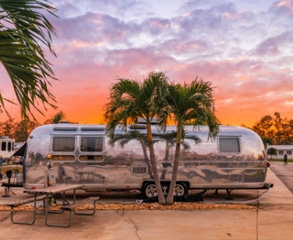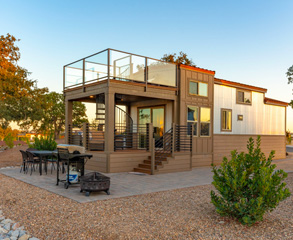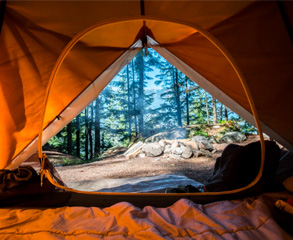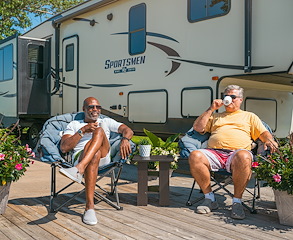Ultimate Hiking Tips for Beginners: Your Guide to Exploring the Great Outdoors
What's the best way to traverse the great outdoors? If you said hiking, we like the way you think! Using the power of your own two feet to explore the wilderness is a favorite pastime for campers and travelers alike. To ensure your hiking experiences are enjoyable and stress-free, we've compiled essential tips for both beginners and enthusiasts.
Hiking Tips for Beginners
1. Choose the Right Trail
One of the biggest mistakes beginners make is attempting trails that are too challenging. Start with a straightforward trail that matches your skill level. Remember, even experienced hikers have to build their skills over time. Most trail guides provide difficulty ratings—look for "easy," "moderate," or "strenuous" to find a trail that suits you.
2. Know the Trail's Popularity
Before you head out, research the trail's popularity. Some trails get crowded on weekends or during peak seasons, which can affect your experience. Use resources like AllTrails or Google Maps to gauge popularity and find less crowded times to hike.
3. Check the Weather
Always check the weather forecast before your hike. Conditions can vary significantly between different areas, so ensure you're looking at the specific weather for your hiking location. Use services like Mountain Forecast for detailed information on weather conditions at higher altitudes.
4. Tell Someone Where You'll Be
Safety first! If hiking alone, inform a friend or family member about your plans and expected return time. Having someone check in on you is a crucial safety measure, especially if you're exploring remote areas.
5. Pack the Essentials
Here's a list of essential items to pack for your hike:
- At least two bottles of water
- Snacks like fruit, jerky, nuts, trail mix, and dark chocolate
- Flashlight or headlamp
- Map and compass
- Rain jacket
- Basic first aid supplies (bandages, instant ice pack, antibiotic ointment)
Keep your pack lightweight by sticking to essentials; each item adds weight that can make your trek more difficult.
6. Dress Properly
Dressing appropriately is key to a successful hike. Invest in good hiking shoes or boots that are broken in. Avoid cotton clothing; opt for synthetic, moisture-wicking fabrics. If hiking in cooler environments, dress in layers and don't forget hats and gloves!
7. Pace Yourself
Start your hike at a steady pace. It's tempting to rush out of the gate, but pacing yourself will help prevent burnout and injuries. Focus on maintaining a consistent rhythm.
8. Understand Trail Etiquette
Familiarize yourself with trail etiquette to ensure a respectful hiking experience. For a deeper dive, check out our post dedicated to hiking etiquette.
9. Study First Aid and Hygiene
You don't need a medical degree, but having basic first aid knowledge is essential. Consider taking a wilderness first aid course. Don't forget to pack hand sanitizer and biodegradable toilet paper for hygiene.
10. Leave No Trace
Practice Leave No Trace principles to protect the environment:
- Pack out all trash
- Bury human or pet waste
- Extinguish and clear campfires
- Avoid disturbing wildlife
Mother Nature will thank you!
Hopefully, these hiking tips will enhance your next outdoor adventure. If you found this information helpful, please share it with fellow outdoor enthusiasts! Have a hiking adventure and stay with us as you connect with nature.
Related Post









